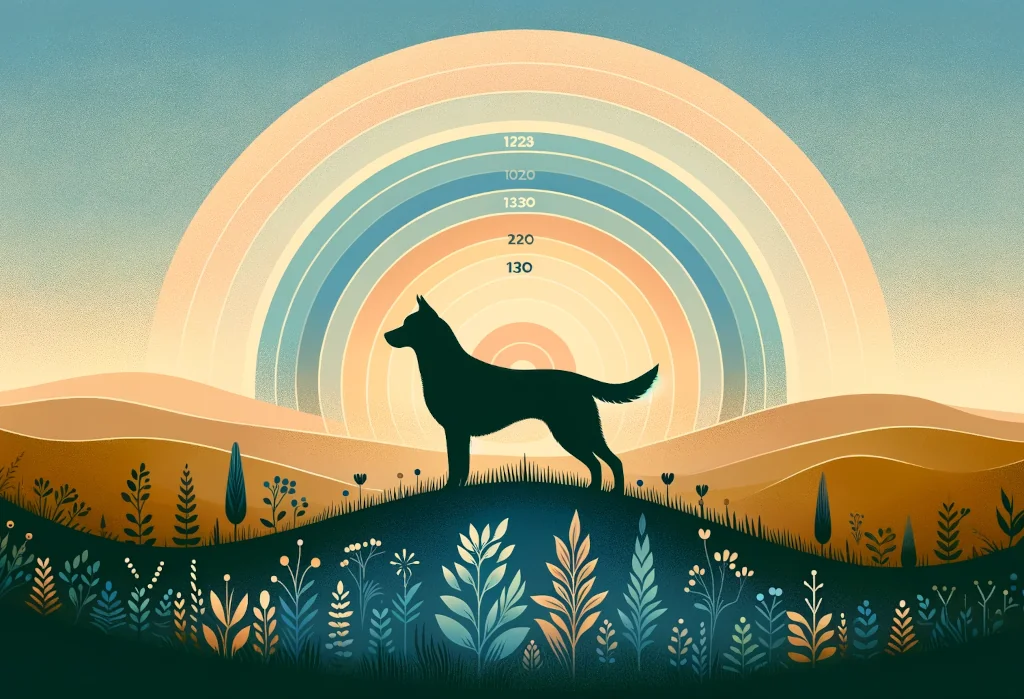Watching your dog age is like watching the fast-forward button on your favorite slow-motion video—bittersweet and a tad confusing. Suddenly, your energetic pup is starting to slow down, and you’re left wondering if it’s time to switch their food to something more suited for their golden years.
This blog post promises a clear, down-to-earth guide on when to transition your dog to senior food, ensuring they’re getting the nutrition they need as they age.
Key takeaways:
- Transition to senior dog food when you notice decreased activity, weight gain, or difficulty chewing—these are signs your dog’s dietary needs are changing.
- Senior dog food formulas offer lower calorie content, adjusted nutrients for aging bodies, and supplements like glucosamine for joint health.
- Switch your dog’s food gradually over 7-10 days to prevent digestive upset, and consult with a vet for dogs with health issues like diabetes or kidney disease.
What Signs Indicate It’s Time for Senior Dog Food?
When your furry friend starts showing silver whiskers, it might be time to ponder over their diet. Though age is a number, dogs, much like humans, exhibit certain age-related changes that prompt a dietary shift. Here’s what to keep an eye on:
- Decreased Activity Levels: Older dogs often take the slow lane. If your once energetic pup now prefers lounging over lunging, it’s a sign.
- Weight Gain: Slow metabolism in senior dogs means they don’t burn calories as they used to. A rounding belly might suggest it’s time for a diet adjustment.
- Difficulty Chewing: Watch out for signs of discomfort while they’re chowing down. Dental issues common in older dogs could mean they struggle with hard kibble.
- Dull Coat or Skin Issues: A once glossy coat turning dull, or emerging skin issues could indicate the need for a diet higher in specific nutrients.
- Joint Stiffness or Soreness: If your dog starts to show signs of difficulty in getting up or reluctance to climb stairs, it might benefit from a diet with joint health supplements.
Recognizing these signs early can help you transition your dog to a senior diet that supports their changing needs and maintains their quality of life.
What Makes Senior Dog Food Different?
Switching to senior dog food isn’t just about facing the reality of your dog’s age; it’s about catering to their evolving nutritional needs. Senior dog foods are formulated with these changes in mind:
- Lower Calorie Content: To combat the slowed metabolism and prevent obesity, senior dog foods generally have fewer calories.
- Adjusted Nutrients: They often have higher fiber content to aid digestion, less sodium to protect the heart, and adjusted levels of protein and fat.
- Supplements for Joint Health: Ingredients like glucosamine and chondroitin are gold for aging joints, helping to keep your dog mobile and pain-free.
- Enhanced with Antioxidants: To support aging immune systems, senior diets are loaded with antioxidants like Vitamin E and beta-carotene.
What’s unique though? Many pet parents aren’t aware that certain brands now incorporate medium-chain triglycerides (MCTs), which have been shown to improve brain function in older dogs. Including a diet with MCTs can help keep your dog’s mind as sharp as their bark!
How Can You Transition Your Dog to Senior Food Safely?
Switching foods can be a bit like rearranging the living room – it needs to be done carefully to avoid upset (in this case, of the stomach variety). Here’s how to ensure a smooth transition:
- Start Slow: Begin by mixing a small amount of senior food with their current food. A good rule of thumb is to start with 80% old food to 20% new food.
- Gradually Increase: Over the next 7-10 days, gradually increase the amount of senior food while decreasing their current food. Keep an eye on their response; if they show signs of digestive discomfort, slow down the transition.
- Monitor Their Response: Pay close attention to their stool quality, appetite, and general behavior. Any significant changes might warrant a slower transition or a chat with your vet.
- Stay Hydrated: Ensure your dog has access to plenty of fresh water, especially as they adjust to a new diet with potentially higher fiber content.
One piece of advice that’s often overlooked? Taste test. Before committing to a big bag of senior dog food, see if you can snag a sample or a small bag. Each dog’s palate is unique, and ensuring they actually enjoy their new diet is crucial for a smooth transition.
Transitioning to senior food marks a new chapter in your dog’s life. Approaching it with care ensures they remain happy, healthy, and active, regardless of the number of candles on their birthday cake. Stick around for more insights on caring for your senior pooch as they gracefully trot into their golden years.
Are There Special Considerations for Senior Dogs with Health Issues?
Absolutely! When we talk about man’s best friend stepping into their golden years, especially those with specific health conditions, their diet requires a bit more thought and care.
Switching to senior dog food isn’t a one-size-fits-all situation. For pups battling conditions like diabetes or kidney disease, the stakes are higher, and their nutritional needs can dramatically shift. That’s why it’s crucial to consult with your veterinarian before making any changes to your fur baby’s diet. Let’s dive into the nitty-gritty of navigating this transition with both wisdom and warmth.
When facing the question of dietary adjustments, remember, each dog’s needs are as unique as their personalities. For example, a dog with diabetes may require a diet low in fats and carbohydrates to help manage blood sugar levels. On the other hand, a pooch with kidney issues might need a diet low in phosphorus to ease the workload on their kidneys. Here’s where the advice of a veterinary nutritionist can be worth its weight in gold, helping tailor a diet plan that supports your senior dog’s health.
Why Consult a Veterinarian?
- Tailored Advice: Veterinarians can provide customized dietary plans based on your dog’s specific health issues, weight, age, and activity level.
- Prevent Nutritional Imbalances: They ensure that the diet doesn’t inadvertently lead to nutritional deficiencies or excesses, which can exacerbate health problems.
- Medication and Diet Interaction: Some foods can interfere with medications. A vet can guide you on what to avoid to ensure your dog’s treatment remains effective.
Potential Dietary Adjustments
For Dogs with Diabetes:
- Low Glycemic Index Foods: Foods that don’t spike blood sugar levels. Think high-fiber vegetables and certain whole grains.
- Controlled Portion Sizes: Overeating can derail blood sugar levels. A vet can determine the perfect portion for your pet.
For Dogs with Kidney Issues:
- Low Phosphorus Diet: Helps lessen the burden on the kidneys. Foods like egg whites and certain lean meats can be beneficial.
- Increased Omega-3 Fatty Acids: Fish oil supplements can help improve kidney function and slow the progression of kidney disease.
One piece of advice that’s often overlooked but can significantly impact your senior dog’s health is hydration. Senior dogs, especially those with kidney issues, require ample fresh water to support kidney function and overall health. While this might sound obvious, ensuring your senior dog has constant access to clean water and encouraging them to drink regularly can make a world of difference.
Parting Thoughts
Transitioning to senior food is more than just picking a new bag off the shelf; it’s about adapting to your aging companion’s evolving health needs. Sure, it might require a bit more effort and coordination with your veterinarian, but seeing your pooch thrive in their senior years makes it all worthwhile. Remember, the goal here is to not just add years to their life but to add life to their years. So, take this journey with patience, love, and the guidance of trusted professionals, ensuring your furry friend’s golden years are truly golden.
Alex, a passionate animal lover, has experience in training and understanding animal behavior. As a proud pet parent to two dogs and three cats, he founded AnimalReport.net to share insights from animal experts and expand his knowledge of the animal kingdom.





